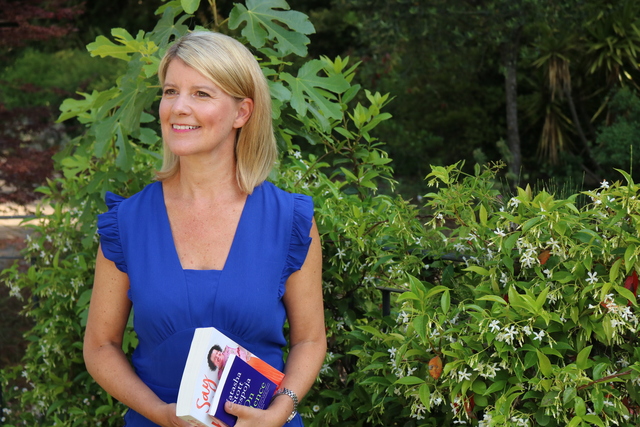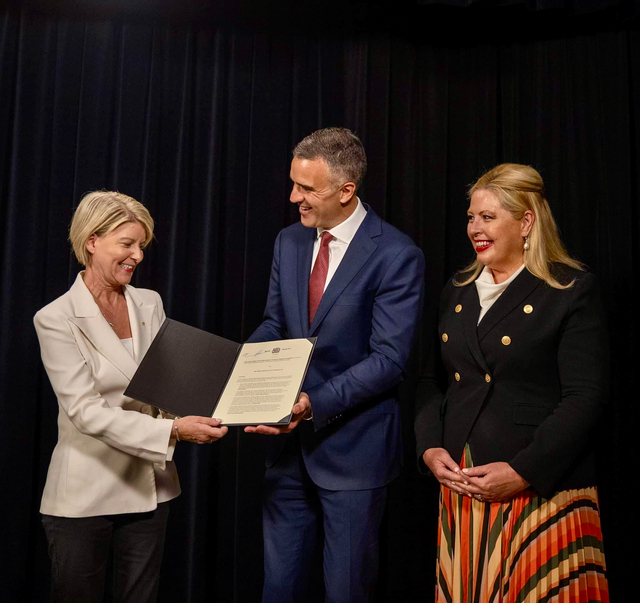World Health Organisation (WHO) describes violence against women as an epidemic. In Australia, it is a national emergency. Almost daily reports of women being murdered by people known to them has created a national outcry.
Rural communities are being included in the upcoming rounds of consultation conducted by the newly appointed Commissioner, Natasha Stott-Despoja AO.
The South Australian Royal Commission into Domestic, Family and Sexual Violence is seeking input, submissions and contributions from regional rural South Australians to ensure that all women are heard and included in what will be an action plan towards preventing and ending this epidemic.
According to the Australian Longitudinal Study on Women’s Health, regional women reported to either be in or having been in a violent relationship with a partner or spouse at some time in their life were higher than those living in major metropolitan centres.
One in four women from regional (24 per cent) and rural (26 per cent) areas compared with one in five (20 per cent) in metropolitan.
In late 2023, the South Australian Government announced its intention to have a Royal Commission inquiring into domestic, family and sexual violence. The appointment of Ms Stott Despoja as Commissioner is seen as a green light for the Royal Commission to be thorough, concise and swift towards action.
As the founding chairperson of Our Watch, the national foundation to prevent violence against women and children, she was appointed the life patron in August 2022.
Ms Stott Despoja is currently a member of the United Nations Committee of the Elimination of Discrimination Against Women and served on the United Nations High Level Group on the Health and Human Rights of Women, Children and Adolescents.
“I am greatly honoured by the faith the Premier (Peter Malinauskas) has in me to lead such an important and timely Royal Commission, and I had no hesitation in saying yes,” she said.
“I am pleased that I can bring my experience to help tackle the scourge of domestic, family and sexual violence in my home state. But I do not under-estimate the challenges ahead – this is important and complex work.”
Ms Stott Despoja said in South Australia there was a strong intention to do something meaningful so change could be achieved, and she wanted to see generational change happen.
“I want people to feel safe and supported to tell their story, in particular, those with lived experience. It is also important that I hear from organisations, individuals, agencies and the sector that deals with this scourge regularly,” she said.
“We need to know about what is working, what constitutes best practice, what is going wrong, and where there are gaps in the system. Everything is ‘on the table’ from primary prevention, early intervention, response and of course, healing.”
In her role, Ms Stott Despoja will meet with as many organisations and groups as possible, making sure to hear from people who do not always get a say, including young people and children, and in a way that is safe, protected and trauma informed.
Ms Stott Despoja said she was very keen to ensure everyone’s well-being in this process and make it as accessible as it could be.
“We do not want to retraumatise victim-survivors through this process. I also have a very real focus on groups that may be experiencing high rates of this violence, including Aboriginal women and children,” she said.
“I want to walk alongside them and hear their stories, and learn from them.”
A critical component of the Royal Commission will be to ensure regional rural South Australia is included in contributions and discussions along with recommendations in the final report presented to government.
The Commission will inquire on four key areas – prevention, early intervention, response and recovery, and healing.
With the focus on hearing from survivors and those who work in the domestic, family and sexual violence systems, there will be a specific lens used across how efforts in these areas are coordinated and activated across government, the domestic violence sector and community as a whole.
“The Commission has entered its listening phase – we are inviting submissions and meeting with the sector and relevant agencies in metropolitan Adelaide, and soon will undertake our first regional visit,” Ms Stott Despoja said.
“It is critical that we hear from all South Australians, regardless of their postcode. I am aware of the unique challenges faced in regional and remote communities and want to understand this better, by hearing from the people who live in and service these communities.
“You know that this kind of listening event is important to me, as I have done it previously in different capacities, including as the former chair of Our Watch. The Commission’s online ‘Share With Us’ tool will be available in September, this will provide another way for everyone to share their advice and ideas with me.”
There is some speculation from community this is ‘another’ Royal Commission. When asked if the Royal Commission will make a difference Commissioner Stott-Despoja AO was clear in her intention.
“Quite simply, everything is ‘on the table’. The Government has established this Royal Commission to develop a blueprint for reform – every aspect of the current domestic, family and sexual violence systems will be examined,” she said.
“My role now is to meet with as many organisations and groups as possible, and make sure that we hear from people who do not always get a say, including young people and children, and importantly doing this in a way that is safe and protected and trauma informed.
“Every piece of information will help build the bigger picture of what we need to focus on. I wouldn’t be doing this if I did not think this Royal Commission can make recommendations for meaningful and transformative change.
“I want meaningful change. I am driven by a desire to see this violence eliminated in South Australia and beyond. I want to lead a Royal Commission that presents findings that will change lives and, hopefully, save them.”
Minister for Women and the Prevention of Domestic Family and Sexual Violence, Katrine Hildyard MP, has a personal passion and desire to ensure this Royal Commission is inclusive on all levels.
“Our community has had enough of the horrific prevalence of domestic, family and sexual violence,” Ms Hildyard said.
“This is a real opportunity to tackle gender inequality, put the wellbeing and safety of women front and centre, listen to survivors from around South Australia and send a message to our community…violence will not be tolerated. We are resolute in our support for survivors – they will be heard.”
In her Inaugural Parliamentary Speech, Minister Hildyard bravely shared her own personal experience with domestic violence.
“When I was thinking about what I would be saying, I knew that sharing my own childhood experience would be so important,” she said.
“Demonstrating the importance to others that the more of us who speak out encourages others to do the same. Hopefully this creates the best possible opportunity to drive change together.”
Ms Hildyard is confident the Royal Commission process will be a safe space, front and centre, where victims/survivors and all involved in support services, can be listened to and heard.
“This Royal Commission is sending a clear message that violence in our state will not be tolerated. I encourage everyone to contribute and we have a specific system in place where people can speak in a confidential and anonymous way if they so choose as well,” she said.
Commenting on public scepticism regarding Royal Commissions, the Commissioner emphasised her involvement and committment.
“The fact that the Government has funded and established a Royal Commission with such broad ranging and in-depth terms of reference means we can expose any failings of government as well as other agencies, the fact that they’ve been prepared to do that, should alleviate some of those concerns,” she said.
“I am very pleased that we have the goodwill and political will for change. I know that the sector wants change.
“This is a great opportunity and I hope that they’re not sceptical because there is one thing that we can’t afford to be, and that is to be sceptical, because women are dying, and children are being injured or killed.
“We have to address this, and I wouldn’t be doing it if I didn’t think we could make meaningful and transformative change.”
The Issues Paper has been released, with initial responses sought for issues raised and questions asked within. Anyone with advice, suggestions or ideas about how a domestic, family and sexual violence system can deliver the best outcomes for those interacting with it in SA are encouraged to contribute.
Submissions are sought by Friday, August 16. Statewide community and sector consultations begin in July and continue through to December. Dates, locations and will be announced in the coming weeks.
Full details can be found at www.royalcommissiondfsv.sa.gov.au









